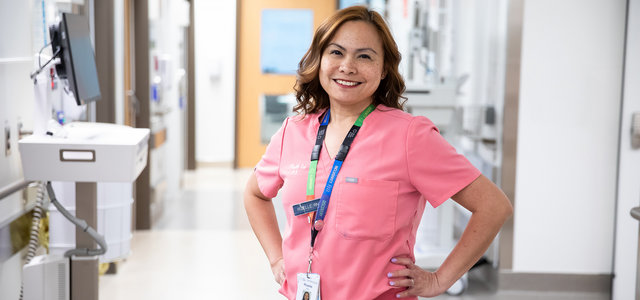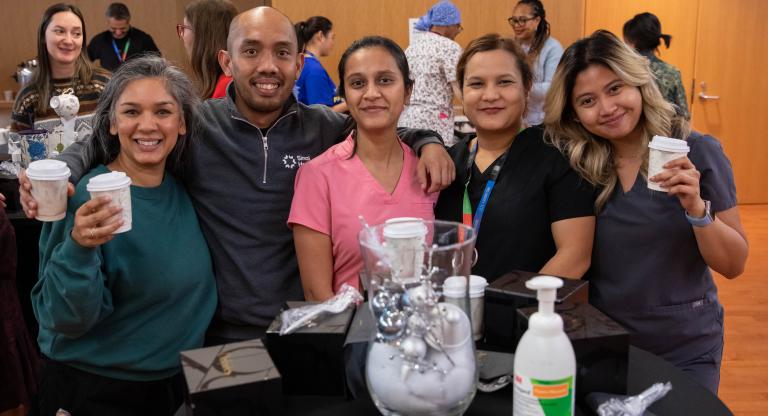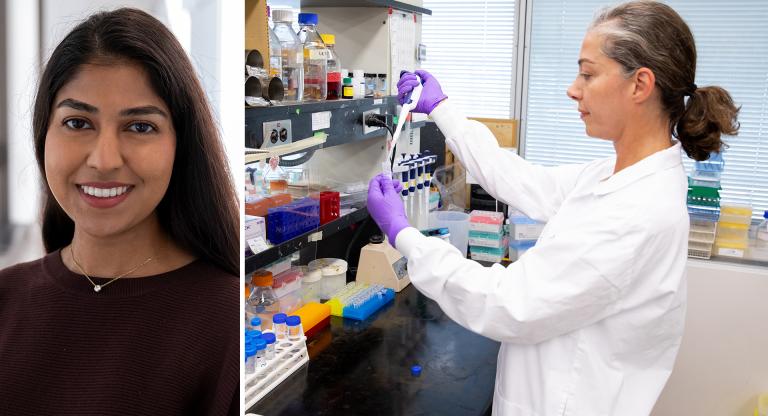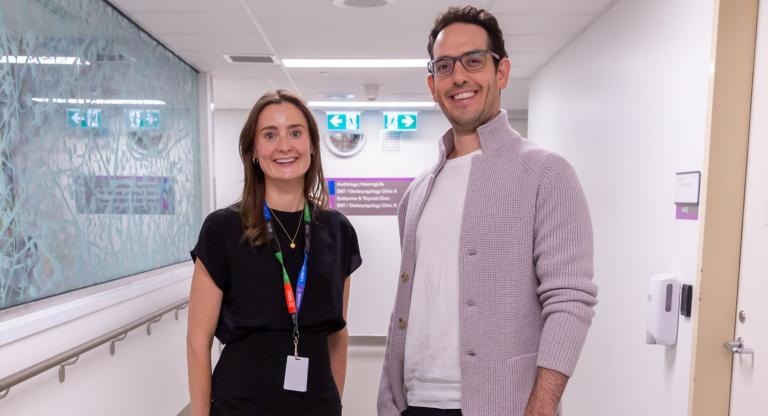'It's the little things' that make General Internal Medicine nursing special: Q and A with Sinai Health's Nurse Rizelle Que

Rizelle, a Registered Nurse, has dedicated 16 years of her career to providing exceptional patient care.
She has worked at 17 South General Internal Medicine (GIM) unit at Mount Sinai Hospital since 2008, joining straight out of university. Rizelle currently works in the 10 North GIM unit, continuing her commitment to excellence in nursing. We asked her some questions about what keeps her inspired in her career as a nurse.
What do you love about working in General Internal Medicine?
I love working in the General Internal Medicine for many reasons. Every day, I get to help people and love making them smile, knowing I’ve had a positive impact on a patient’s experience. I don’t think anyone looks back at their care and says, ‘that nurse was so great at changing my dressing’ or ‘I love how they placed that IV’. They remember the way you made them feel, and the care and respect that you showed them. It’s the little things that make the difference.
In GIM, all of my nursing skills, critical thinking, and clinical processes are constantly being utilized. This helps me continuously develop and enhance my nursing abilities, whether it’s conducting a simple head-to-toe assessment, providing tracheostomy or G-tube care, or managing multiple, complex wound care needs.
Even after 16 years as a GIM nurse, I’m still discovering new things every day. Whether it’s learning the best approaches for caring for dementia patients or mastering new clinical techniques, the GIM setting provides endless opportunities for professional growth and development.
What excites you about the new unit designated specifically for GIM patients?
I’m excited about the new 20-bed GIM unit and all the advanced equipment that will enable us to provide the highest quality of care for our GIM patients. The private rooms in particular will be a game-changer, as we’ve always struggled with a shortage of isolation rooms. Having that dedicated space will greatly improve patient flow and comfort.
How do you collaborate with the interprofessional team to care for GIM patients?
GIM patients often have highly complex needs that require a collaborative, multidisciplinary approach – it takes a whole village. When caring for a patient with delirium or functional decline, for example, I would consult with physical therapy or occupational therapy to assess mobility and recommend a safe discharge plan. I would collaborate with the geriatric psychiatry nurse to develop a behavioural care plan, the social worker to coordinate discharge supports, and the dietitian to optimize the patient’s nutritional intake. The close partnership between nursing and the interprofessional team is essential for providing comprehensive, patient-centered care.
What would you tell a nursing student interested in pursuing a career in GIM?
I would tell a nursing student that GIM is an incredibly rewarding field. It’s a place where you can truly grow as a nurse and learn from a wealth of experienced colleagues, managers, and multidisciplinary partners. The work can get challenging at times, but the support and collaboration from your team make all the difference. I’ve had both difficult days and incredibly fulfilling ones – and it’s the latter that makes this the most rewarding role I could imagine.
Is there anything else you’d like to share?
As a GIM nurse at Mount Sinai, I’ve had the privilege of serving patients for the past 16 years. I’ve been consistently humbled and inspired by the immense impact our work can have on the lives of those in our care. I witnessed firsthand the remarkable transformations that can occur when the mind, body and spirit are nurtured with kindness and expertise. It is in these moments of healing and growth that I feel most grateful for my role, and most fulfilled in my calling to serve. Though the path is not always easy, the joy of seeing my patients content, empowered and satisfied with their care makes every obstacle worth overcoming.











